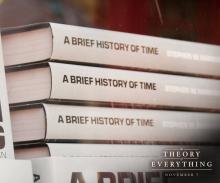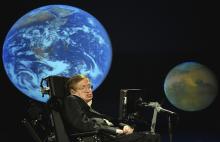A Brief History of Time

AS AN occasional participant in a book group, I’m happy to report that the wine at the last one was pretty good. Also the fellowship, the spirited conversation, and, finally, before we ran out of time, discussion about the book, which consisted mainly of how most of us didn’t finish it, or start it. In my case, however, I couldn’t put it down.
It was The Lost City of Z, a recounting of an intrepid explorer’s frightening ordeals in the unforgiving jungles of the Amazon, which ultimately ended when he succumbed to cannibalism. It was a chilling read, one that convinced me to confine my travels exclusively to the continental United States. Because if there’s anything that ruins a good walk, it’s being eaten by your own species. According to the book, at the turn of the last century certain tribes in remote South America believed they could spiritually cleanse themselves by devouring their enemies. (Fortunately, that practice has died out, except for in a few red states during primary season.)
I read every word of that book, usually with the covers pulled tightly around me and all the lights on, while making sure that I didn’t appear delicious to anyone in the vicinity.

The new Stephen Hawking biopic The Theory of Everything, presents the relationship between the famed physicist and his first wife, Jane, in beautiful display. Screenwriter Anthony McCarten described the underlying theme of the film such:
“If all of us were some kind of cosmic accident, what chance love? That’s the point at which science breaks down, and something else exists.”
That rift between the proofs and facts that drive Hawking (played by Eddie Redmayne) and the “something else” represented by the inspiring story at its center is one that reflects a larger conversation about faith, science, and the unknown that feels like it’s been a part of culture from the beginning of time (all puns aside). It’s unfortunate, then, that the film doesn’t take the opportunity to explore those discussions beyond the surface level.

Renowned scientist and author of such books as A Brief History of Time, Stephen Hawking suggested recently that it is conceivable in the future that we may be able to upload the contents of the human brain onto a computer so that the information may, in a sense, become immortalized. He readily conceded, however, that such a task was well beyond our current technological capacity, and he offered some measured words of caution for those who sought to read too much into this potential.
When asked if this meant that there was potential for the mind to live forever through an alternative medium, he was dismissive. Such talk of human immortality, he said (and in particular, the very notion of heaven), was the stuff of fairy tales for people “afraid of the dark.”
Then in the same week, TIME Magazine featured a story about Google on its cover, highlighting a new company it has recently launched called Calico. The new enterprise is perhaps the most ambitious of what Google commonly calls their “moonshot” projects, as its aim is to prolong the human lifespan potential, and perhaps eventually solve the “problem” of death.
All of this was particularly interesting to me in the context of the conversation between Richard Dawkins and Jon Stewart on a recent episode of The Daily Show about whether science or religion was more responsible for hastening humanities apparent self-destruction.